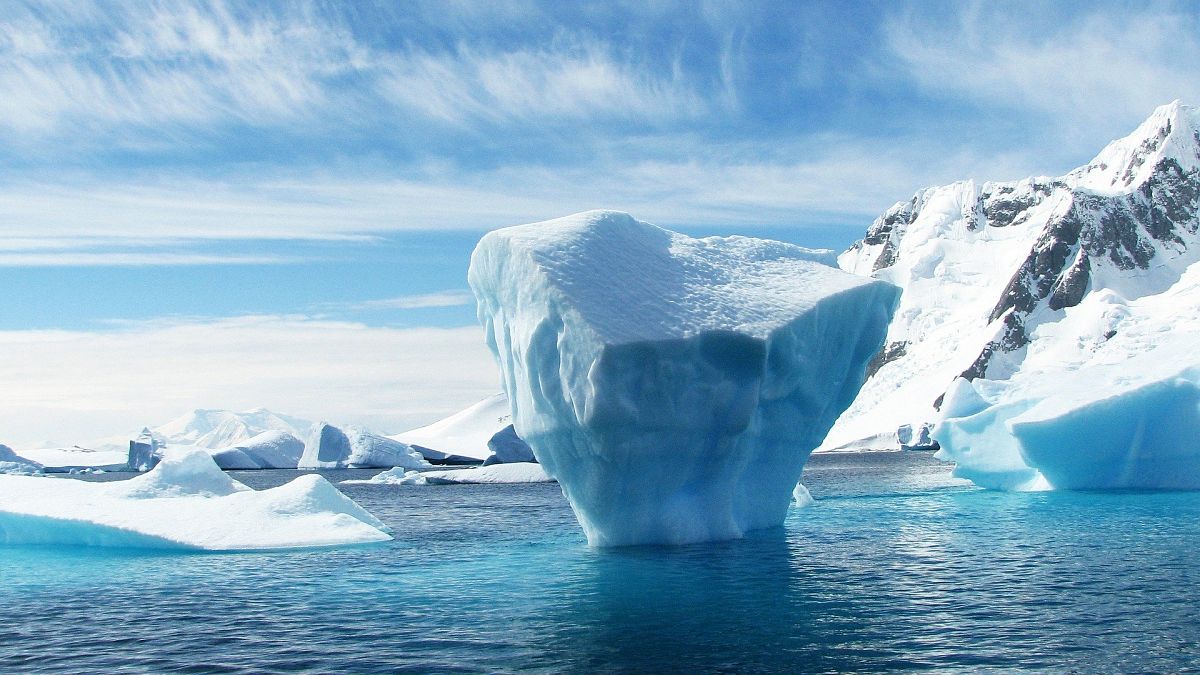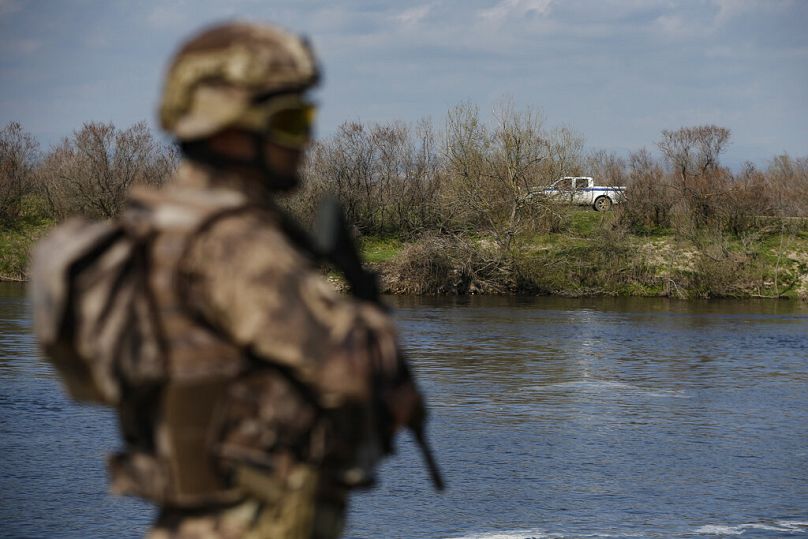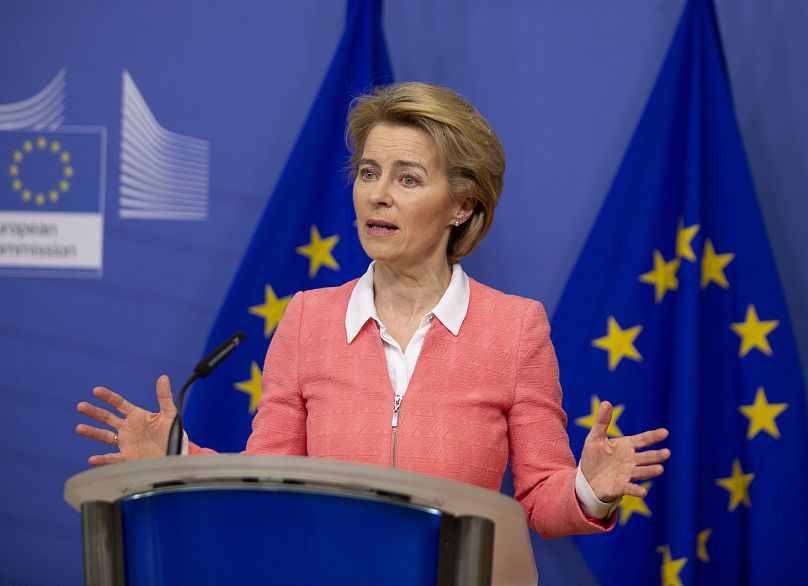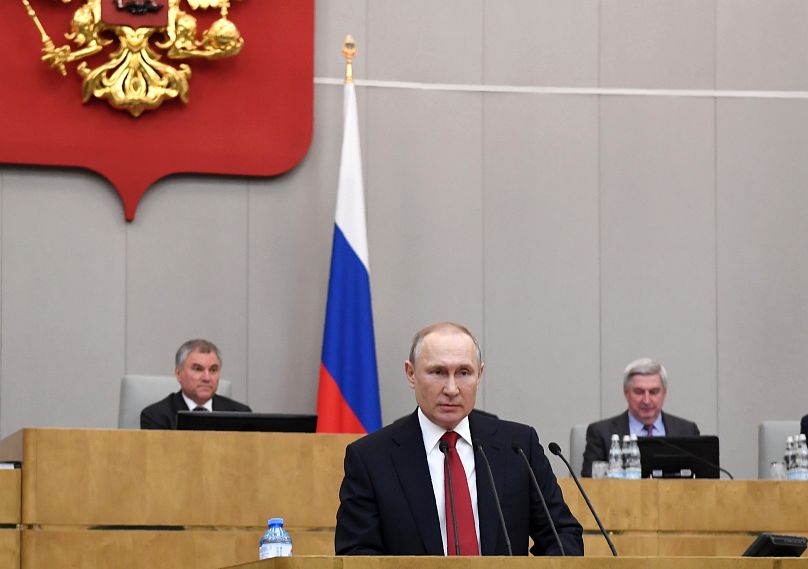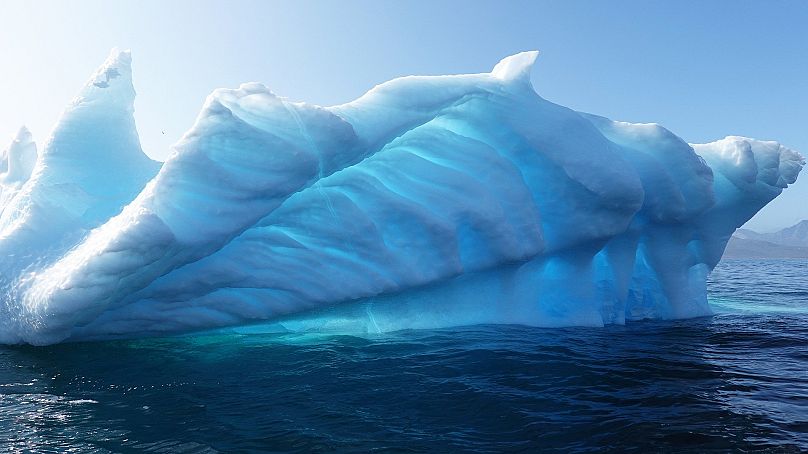The news may be saturated by COVID-19 and new areas of society it is affecting, but other news is still out there.
The coronavirus pandemic headlines on tv, social media and digital news may have you believe that the world has come to a stop: All wars, conflicts and climate change developments are on halt because of COVID-19 - or so it seems.
Here are a few headlines that you may have missed in the midst of coronavirus-mania:
Turkish President Recep Tayyip Erdogan said on Wednesday that there was "no difference" between the Nazis and the Greek authorities forcibly repelling thousands of migrants seeking to reach Greece after the borders were opened by Ankara.
"There is no difference between what the Nazis were doing and the images coming to us from the Greek border," Erdogan said in a speech in Ankara, also calling the Greek authorities "barbaric" and "fascists".
It was the latest escalation in the crisis, which has seen the European Border and Coast Guard Agency sending reinforcements to the frontier between Greece and Turkey.
As the stalemate continues, it's an anxious, and increasingly tense wait for those caught in the crisis, as authorities use tear gas and water cannon to maintain control.
2. EU unveiled its new circular economy plan
What may sound like a rather dry headline is actually a new rather controversial new EU-strategy that would make some tech providers, such as Apple, very unhappy.
The action plan includes policies to make sure products have a longer shelf life, make information available to consumers on how repairable products are, as well as improving the treatment of waste (especially in electronics).
According to the plan, the EU plans to halve municipal waste by 2030 and offer consumers the "right to repair" for computers and smartphones.
The European Commission's idea to mandate a universal charger for mobile phones is likely to trigger resistance from Apple, f.ex.
While Green groups are happy that the EU is taking the circular economy seriously, once again they have criticised a lack of targets.
"The new Action Plan contains other key proposals for the transformation to a circular economy, such as a commitment to address key product value chains, to come forward with waste reduction targets and to revise waste shipment rules. However, several indispensable pieces of the puzzle are still missing; we lack clear targets for reducing resource consumption and disappointingly, the European Commission barely looks at the issue of pricing to stimulate the uptake of circular products over pristine items," Bas Eickhout (Dutch MEP Greens/EFA) said in a press statement.
3. Europe ramps up efforts to curb emissions
In Paris, mayor of the second arrondissement Jacques Boutault has urged to pull the plug on outdoor heaters.
Since the indoor smoking ban was introduced in cafes in 2008, more cafes and restaurants have installed gas and electric heaters outside.
Boutault says it is time to switch them off if the goal is to reduce carbon emissions and become carbon neutral.
Meanwhile, the Netherlands is starting to implement a new 100 kilometre per hour limit on its highways due to the high emissions of nitrogen oxides, which are way above EU limits.
Starting Thursday, new street signs will be installed and speed limits are enforced from the moment the street sign is up.
Drivers may only go above 100 kilometres per hour between 7 pm and 6 am. During those hours, the speed limit is 130 kilometres per hour.
In other good news, Luxembourg introduced free public transport at the beginning of March.
It will be the first country in the world to make public transport entirely free for tourists and residents.
4. Russia's Vladimir Putin backs plans that could keep him in power until 2036
Vladimir Putin has supported a proposed constitutional amendment that would allow him to seek reelection in 2024 and stay in office until 2036, suspending a law that limits Russian presidents to two consecutive terms.
By 2036, Putin would be 83 years old.
Putin and the lower house of parliament quickly endorsed the proposal put forward by 83-year-old former Soviet cosmonaut and MP Valentina Tereshkova
Kremlin critics denounced the move as cynical manipulation and called for protests.
MPs also passed a set of constitutional amendments proposed by Putin that include defining marriage as a heterosexual union and language pledging homage to “ancestors who bequeathed to us their ideals and a belief in God".
5. Ice sheets are melting too fast
Earth's ice sheets in Greenland and Antarctica are melting six times faster than they were in the nineties, scientists say. This accelerates the timeline of climate change and flooding countermeasures that need to be taken.
Two separate papers published in Nature show that the loss of ice has pushed global sea levels up by 17.8 millimetres. 60 per cent of that rise was due to melting sheets in Greenland, and 40 per cent due to melting in Antarctica.
Prof Andrew Shepherd from the University of Leeds (UK) co-leads a project called the Ice Sheet Mass Balance Intercomparison Exercise, short "Imbie".
Its team of scientists have been reviewing the changes in volume, flow and gravity of ice sheets obtained by spacecraft over nearly three decades.
In 2019, the team found that the melting process of the Greenland ice sheets is accelerating.
In 2014, the Intergovernmental Panel on Climate Change (IPCC) observed in simulations that global sea levels may rise by 53 centimetres by 2100, but the Imbie-scientists offered a more pessimistic outlook. They said it is likely that sea levels could rise by 70 centimetres by 2100.
According to Prof. Shepherd, “every centimetre of sea-level rise leads to coastal flooding and coastal erosion, disrupting people’s lives around the planet."
The acceleration in the timeline of ice cap melting means that "400 million people are at risk of annual coastal flooding by 2100. These are not unlikely events with small impacts; they are already underway and will be devastating for coastal communities," Prof Shepherd said according to ESA.
